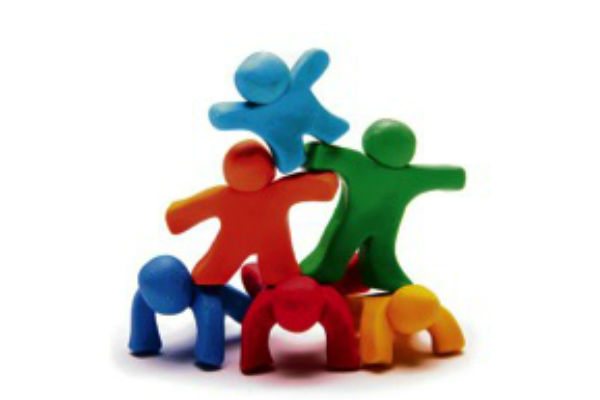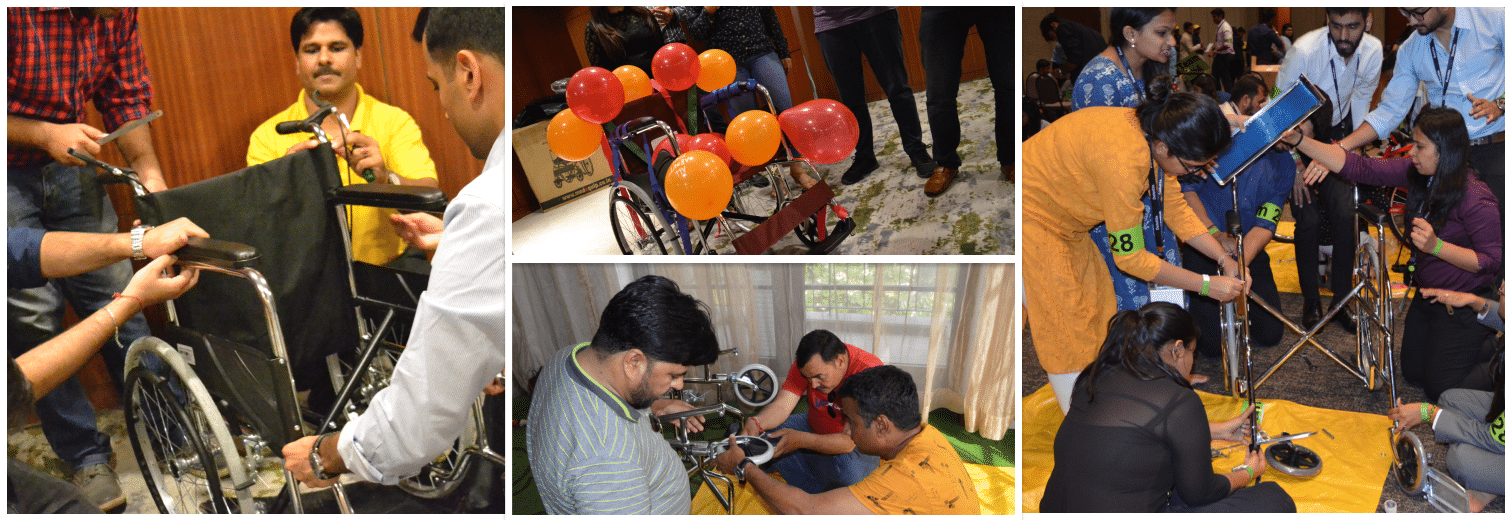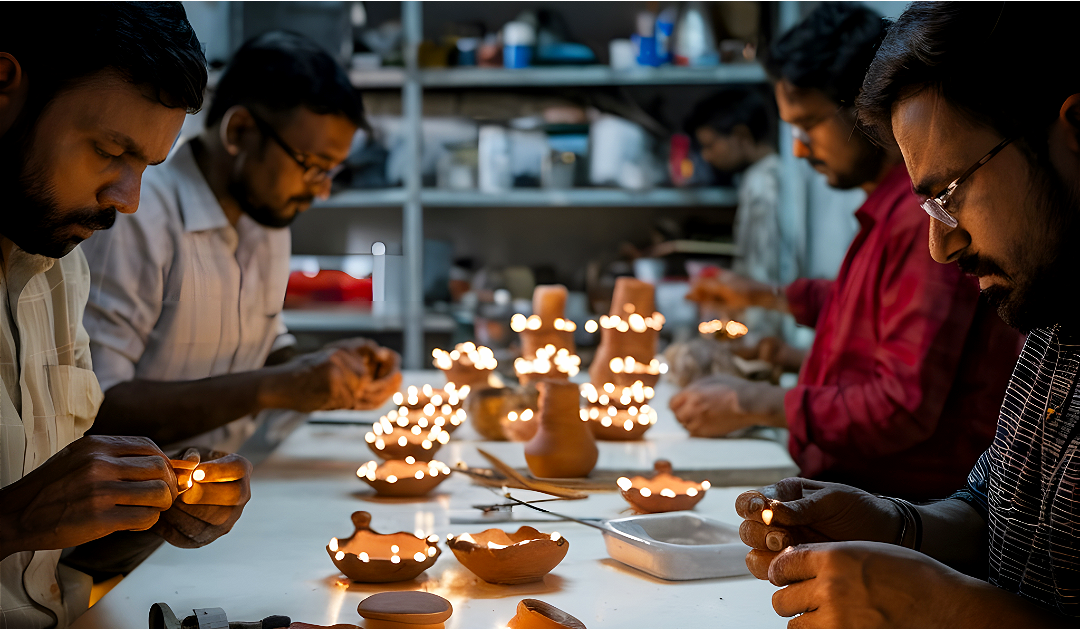The next time you stay at a good hotel, observe the staff closely. You’ll witness something remarkable — a real-time case study in effective teamwork, leadership, and organizational alignment. For anyone in the world of HR or L&D, marquee hotels offer valuable insights into the art and science of collaboration and team work.
Related read: 5 Tricks For A Virtual Team To Collaborate Effectively
In our experience working with hospitality clients, one of the most striking observations has been this: in a high-performing hotel, a team working together is not a luxury — it’s a necessity. Whether it’s the bell desk, housekeeping, F&B, or front office, everyone must function in perfect harmony to deliver a seamless guest experience.
Individual accomplishments are appreciated, of course. But the success of the hotel isn’t driven by star performers. It’s driven by how well everyone moves together — like a well-oiled machine. The belief being: an individual might help solve a crisis, but a great team won’t let a crisis happen in the first place.
From check-in to check-out, guests move through multiple touchpoints. Each one must deliver consistent excellence — or the overall impression suffers. That puts the onus on every single employee to uphold the standard. In hospitality, teamwork is not a soft skill — it’s a survival skill.
Let’s pull back the curtain and explore what makes teamwork in hotels such a powerful model — and what corporate teams can learn from it.
1. Clarity in Goals: One Team, One Dream
Table of Contents
In many high-performing hotels, from the General Manager to the valet, there’s one unifying goal: Guest Satisfaction. That’s the North Star.
While financial results matter, they are seen as a consequence of service excellence. And this clarity filters into every single decision, big or small.
In our workshops with hotel chains, we’ve seen how this alignment enables even frontline staff to make confident, guest-centric decisions — without waiting for managerial sign-off.
Corporate takeaway: How aligned is your team on the organization’s core objective? Have you defined a shared goal? This is the essence of developing high-performing teams.
Related read: Creating a Shared Vision
2. Respect for the Individual: Culture First
Hotels are melting pots of diverse backgrounds, languages, and roles — from the front desk to the steward to the florist. What keeps things humming is a deep culture of respect. Titles don’t trump humanity.
In our experience, the best hospitality environments demonstrate the importance of emotional intelligence, respect, and empathy — values that foster psychological safety.
Corporate takeaway: Respect for colleagues and open communication builds a culture of collaboration & team work that thrives even under pressure.
Related read: Leaders Eat Last: Building Trust and Empathy for High-Performing Teams
3. Being Available for Each Other: Cross-Functional Support
Hotels rarely staff for peak load. Instead, they train their employees to wear multiple hats. When banquet services are overwhelmed, housekeeping staff may step in to assist. During wedding events, even back-office teams get involved.
This fluidity builds empathy across departments and strengthens the team work and collaboration muscle.
Corporate takeaway: Is your team trained to support other functions during crunch times? Cross-functional collaboration builds stronger teams and a more resilient organization.
Related read: Why Cross-Functional Collaboration Is Essential for Your Company
4. Creating Leaders at Every Level
Leadership in hotels is less about hierarchy and more about initiative. Every employee is encouraged to step up when needed. This is often facilitated through cross-training and internal mobility, so employees understand how other departments function.
We’ve noticed that such exposure allows for better decision-making and empathy across roles — critical aspects in today’s VUCA corporate world.
Corporate takeaway: Leadership training shouldn’t be limited to the C-suite. Empowering team members with leadership skills is a critical component of a thriving culture.
5. Asking for Help: A Strength, Not a Weakness
In hospitality, asking for help isn’t a sign of incompetence — it’s a service imperative. If an area is struggling, the team raises a flag, and others rally around. The ultimate goal? Ensuring the guest’s experience never suffers.
This openness fosters psychological safety, reduces burnout, and reinforces that we’re all in this together.
Corporate takeaway: Is your team comfortable asking for support when they’re overwhelmed? Or is there a culture of silent suffering? Leaders must model vulnerability and collaboration.
Bridging the Lessons to Corporate Teams
While the context may differ, the principles of teamwork in hotels apply equally to business teams — whether in IT, finance, marketing, or sales. Here’s how:
- Customer-centric clarity of goals ensures team alignment.
- Mutual respect and empathy drive inclusive cultures.
- Flexible roles and support systems create agile teams.
- Empowering leadership at every level improves execution.
- Normalizing help-seeking behavior builds resilience.
These are the same values we emphasize in our corporate training programs — especially when facilitating sessions on collaboration at work team work, cross-functional alignment, and leadership development.
Final Thoughts
The magic of hotels lies not just in the opulence of their lobbies or the comfort of their rooms, but in the orchestration of teamwork behind the scenes. And that’s where the real lessons lie for corporate teams.
As corporate facilitators, we’ve often said that if more companies operated with the shared ownership, accountability, and respect seen in hospitality, workplace cultures would look very different.
So the next time you step into a hotel — pause. Look around. Observe. You might just walk away with more than a good night’s rest.





